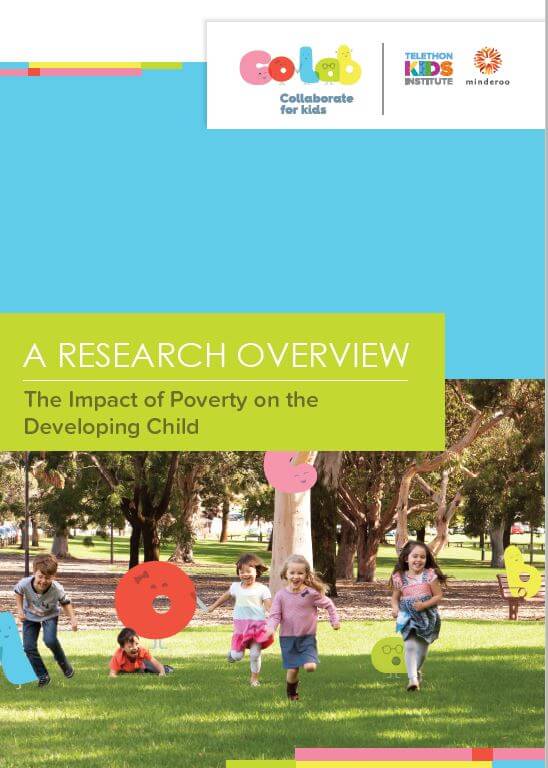Search

Research
Future Child HealthThe greatest threat to children’s health in the future is environmental change, including climate change. The Future Child Health project aims to quantify how current and future environmental changes affect child health.
Information from the Healthy Pregnancy & Me brochure for health professionals on how to raise the topic of gestational weight gain.
How Australia can invest in children and return more presents the opportunity for wise investments in evidence-based early intervention to radically change outcomes for Australian children and young people.

People living in poverty have insufficient household income to meet an acceptable standard of living, and are thus prevented from realising their full potential
Research
Immuno-nephelometric determination of group streptococcal anti-streptolysin O titres (ASOT) from dried blood spots: Method for validating a new assayThis study was designed to determine the sensitivity and reproducibility of recovering anti-streptolysin O titres (ASOT) from dried blood spot (DBS) samples.
Research
Incorporating Children's VoicesInforming urban planning and policy development to grow equitable access to healthy environments for young people and their families.
Research
Infants entering care: developmental needs and care trajectoriesMelissa O'Donnell BPsych (Hons), MPsych, GradDip Ed, PhD Honorary Research Associate Honorary Research Associate Areas of research expertise: Child
Research
Infection Transmission in Early Childhood Education and Care: a mixed methods study to inform future interventionsThe COVID-19 pandemic has exposed many uncertainties and incorrect assumptions about respiratory pathogen transmission.
Research
Kids are not small adults, Identifying age-dependent drug targets in paediatric oncologyCancers in children are very different to cancers in adults. However, most therapeutic strategies are designed explicitly for adult cancers, and then used in children if proven safe.

Learn about those behind the LiLO research study
